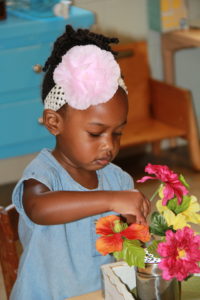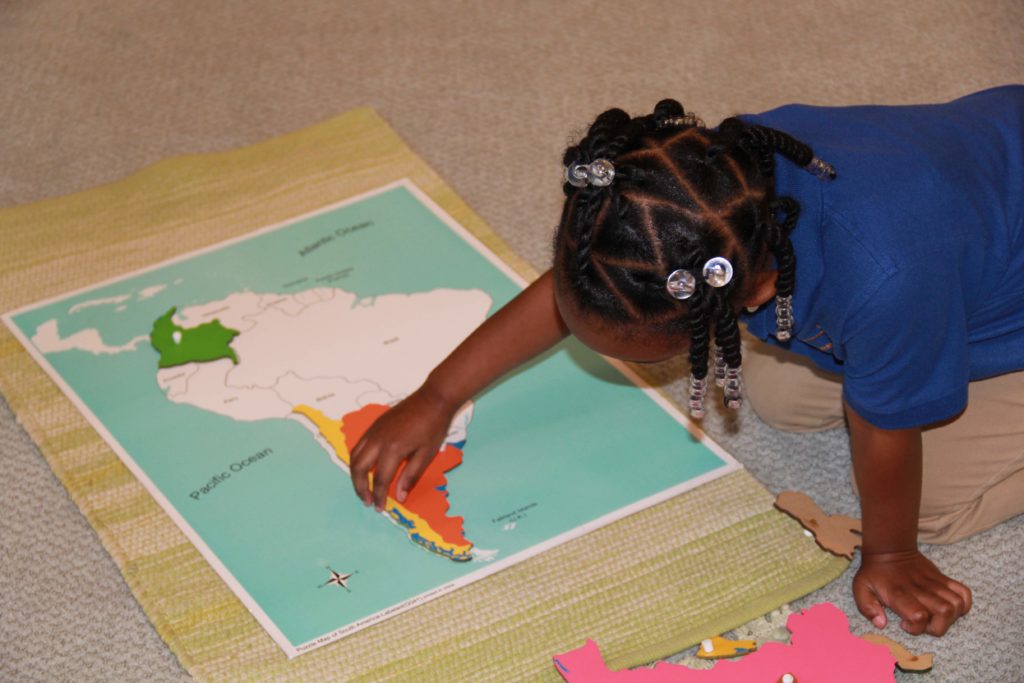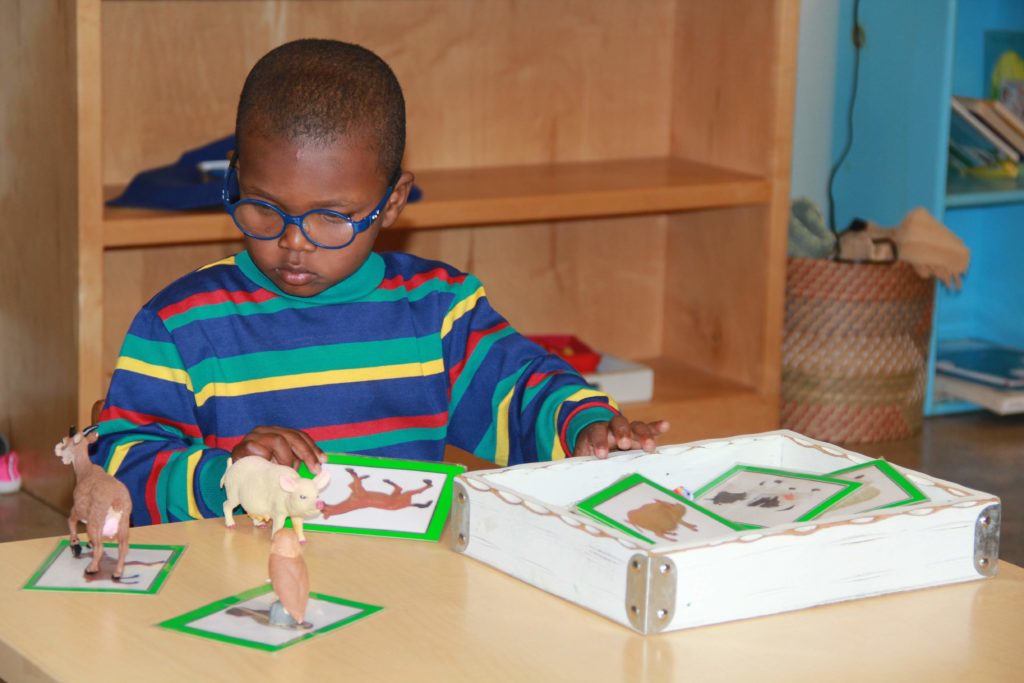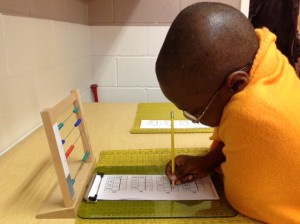
Academic coursework is supplemented with arts education, physical training, life skills coaching, and religious instruction to develop the whole child. Our goal is to provide a supportive and nurturing educational environment that extends beyond the classroom.
Infants & Toddlers (0-3)
The years from birth to three are the most formative in a child’s life. Our Montessori Infant and Toddler environments (Nido and Toddler Community) are designed to harness this incredible period of rapid growth. We provide a loving, safe, and beautifully prepared space that focuses on: Movement & Coordination, Practical Independence, Language Richness, Inner Order & Focus:
Primary (ages 3-6 years)


Elementary (ages 6-9 years)
The Elementary classroom uses Montessori materials in the areas of Mathematics, Geography, Science, and Language. These students learn to identify and place all 50 states on a blank map and to replicate flags from individual countries on specific continents while learning facts about those countries and cultures. Math extends with the Golden Bead materials into Long Division, Geometry, and Advanced Multiplication in preparation for Algebra. Students manipulate materials and then translate the process into written work. Diagramming sentences and classifying parts of speech, journal writing, and research compose the Language curriculum for this age group. Hands-on science materials and outdoor gardening gives students the opportunity to investigate and question the world around them. Caring for and benefiting from a garden has become a strong element of Jubilee’s curriculum for all ages.

Upper Elementary (ages 9-12 years)
The Upper Elementary age students are challenged by independent learning experiences that require the use of their focus, research skills, and problem solving in all academic areas. They must progress to successfully organize their space and materials, to use self-discipline strategies, to complete extensive work cycles, and to accept responsibility for school-wide maintenance and chores. During these years, the students are placed into leadership roles as “huddle leaders” (Fellowship of Christian Athletes concept) for younger students and family groups. As “huddle leaders” they help to set up the dining room for lunch, serve, head a table, and clean up after lunch. They help younger ones during outdoor activities, arts and crafts, sports events, and gardening. During Parent and Family Events, they lead huddles/teams through intentional group building activities and learning experiences. We see maturity as it happens in the willingness of these “huddle leaders” to volunteer to serve others around the school and in the community. Bible study, character building strategies, art, music, and athletics, amidst strong, positive relationships, help to nurture the “seeds of promise” within each child.